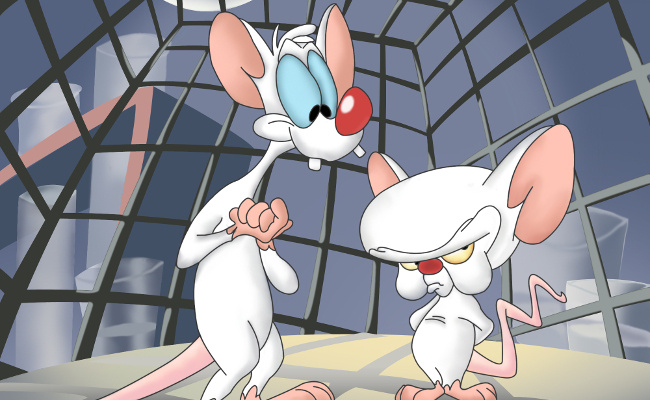Blog [MKG] - Of Mice and Playtests
27Jan
A week ago Iain wrote a post about playtesting and now I would like to add a few opinions about this half-mythological subject. Every time we hear about game designing, one of the key words are 'playtesting' and IHMO sometimes it's a kind of fetish. Is this SO important? Today I would like to share my opinions about it.

- At the beginning, let's divide playtestsing into two groups: authors playtesting and blind playtesting. Authors playtests are tests which you do personally as a designer, or you assist with the game and can explain the rules. Blind playtests are made by a separate group of players who just get the rules and try to use them. Both of these are very important. Author testing can allow you to verify you how close the game is to your vision of how it should look like. Blind tests are important because often it's hard to find your own errors.
- In Poland we sometimes say "Z gówna bata nie ukręcisz", which literally means: "You won't roll the whip from shit" (believe me: slavic proverbs can very poetic!). Playtesting will NEVER replace good rules writing and coherent game conception! You are the author and you are the first in line to find gaps and it is your responsibility. For me the best method is to become "Devil's advocate" from time to time. From time to time after a few days away from a project I read the rules or think about them and try to break them by finding gaps. Another method is composing as OP unit combinations as possible and consider if you really want to see something like that on the table.
- What are the main goals of playtesting? First to find the bugs and gaps, that's obvious. This role can be reduced if you follow point 2. The second role is as important as first one or even more! Wargames are for fun. You do not try to create a timeless opus which brings you immortal glory. Wargames are part of popculture and they have to be cool and allow people to spend the time nicely. It is a very important aspect to let the players judge if the rules are good or not and which parts require some corrections. Some solutions you design are coherent and work but for example can be disliked by players because they make the game longer, are overcomplicated, make the game less fluent or simply do not follow general game logic.
- Are the playtests a way of finding balance in the game? Yes and no. They can be helpful to find game breaking rules units and combinations - but we should always look at it in perspective of fun (as marked above) and game purpose, army composition and assumptions of the rules. For example if your game is about gladiator combat the models which can do too much comparing to their cost should be definitely redone (game breaking). But what in case if your game is about combined arms warfare? Some unit combinations are better when another and that's the goal, isn't it? On another side finding the perfect balance is like a holy grail: some believe that it exists but nobody seriously is looking for it.
- Playtesting is done by humans. Always remember this. Select your testers carefully. The rules are always for a specific group of players or for nobody. If you are doing the competitive, tournament game send it to group of grizzled powergamers first, if you are making the historically accurate wargame find historical wargamers with proper knowledge. If you are making a fast beer and pretzel game, find a relaxed group with a lack of time. Simply put: the bulk of your testers should be people who are interested in the subject, otherwise you will face purely negative feedback only, or they simply do not start testing at all. Also you have to remember that wargames are complex and all players are not equal: they have different play styles, different experience and different skills. Keep it in mind.
- Use the tests results carefully and always verify them. If your testers find something wrong find the cause, if needed eliminate it as soon as possible and consult the alternative with the testers.
- Mice are not good playtesters.
Regards,
MKG
Comments